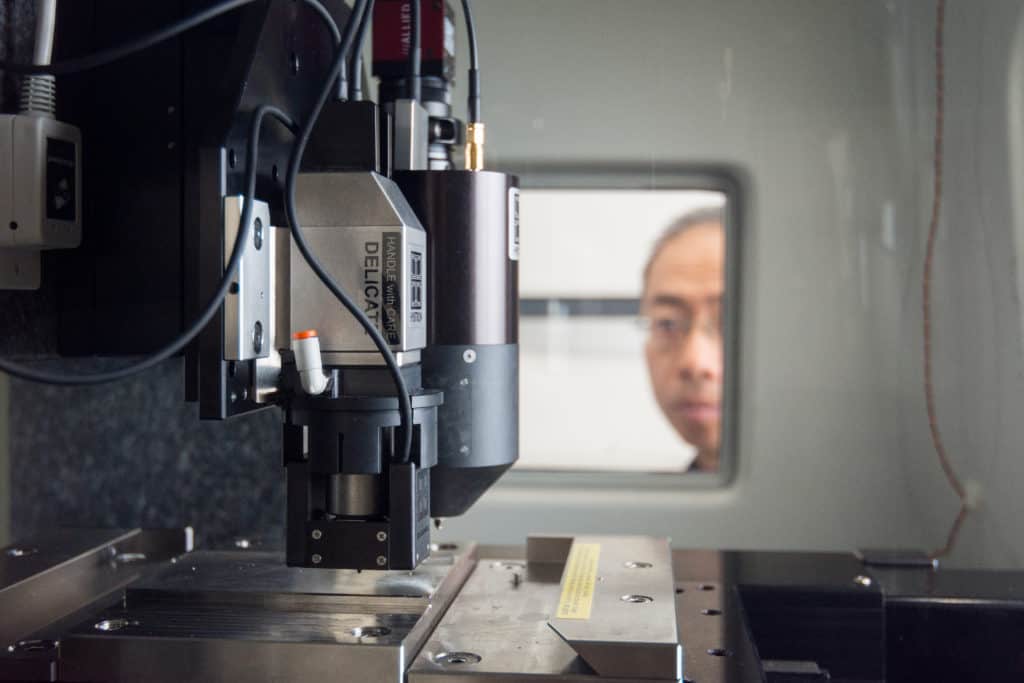
Michigan Center for Materials Characterization joins U-M NSUF Partner Facilities
The facility is dedicated to the micron and nanoscale imaging and analysis of materials.

The facility is dedicated to the micron and nanoscale imaging and analysis of materials.
The Michigan Center for Materials Characterization, also known as (MC)2, has been approved to become a University of Michigan (U-M) Nuclear Science User Facilities (NSUF) partner facility. The (MC)2 joins two other U-M laboratories that are already part of the NSUF, the Michigan Ion Beam Laboratory (MIBL) and the Irradiated Materials Testing Laboratory (IMTL), directed by Prof. Gary Was, of Nuclear Engineering & Radiological Sciences. (MC)2 Is directed by Prof. Alan Taub of Materials Science and Engineering.
NSUF, a program of the U.S. Department of Energy Office of Nuclear Energy provides researchers access to neutron, ion, and gamma irradiations, post-irradiation examination, and beamline capabilities at over 50 facilities nationally. Most of the research looks at either understanding the mechanisms of radiation on materials and fuels to address the challenges of the current fleet of reactors or looks at materials and fuels for the next generation of reactors. The University of Michigan was among the first partner facilities to become a part of NSUF.
(MC)2 is dedicated to the micron and nanoscale imaging and analysis of materials. The center, housed in the North Campus Research Complex, provides state-of-the-art instruments, professional training, and in-depth education for students and other internal researchers, fellow academic institutions, and local industry.
The diverse multi-disciplinary user base supported by the (MC)2 includes more than 450 users from various colleges and departments, 100+ internal research groups, and over 20 non-academic companies.
With the addition of the (MC)2 to the UM NSUF partner facility, researchers participating in Rapid Turnaround Experiments (RTE) will now be able to conduct ion irradiation and post-irradiation analysis at a single location, which will save on cost and time. By RTE rules, users that conduct ion irradiation in MIBL must also characterize their irradiated material at an NSUF facility. The characterization was usually completed at the Irradiated Materials Characterization Laboratory (IMCL), a facility located 1,750 miles away at the Idaho National Laboratory (INL). Now, given the wide array of instrumentation in (MC)2, many RTEs using MIBL will be able to complete their experiment in a single visit to U-M North Campus. This leaves the IMCL free to focus on neutron-irradiated materials, for which it is uniquely suited, rather than on ion irradiated materials that can be characterized at (MC)2.
The (MC)2 brings several unique capabilities that are not currently part of the NSUF suite, including:
“This exciting addition to the U-M NSUF partner facility will provide unprecedented capability and access to the nuclear materials community interested in radiation effects in materials,” said Was.